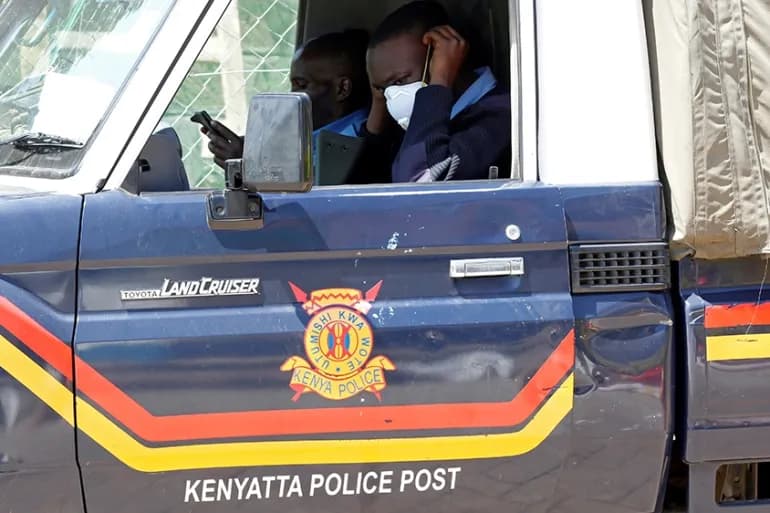We're loading the full news article for you. This includes the article content, images, author information, and related articles.
A deadly ambush on police in Wajir County, claiming the life of a constable, starkly contradicts recent government assurances of stability and reignites concerns over Al-Shabaab's enduring threat along the porous Kenya-Somalia border.

A Kenyan police officer was shot and killed on the evening of Wednesday, 22 October 2025, in a targeted ambush by gunmen believed to be Al-Shabaab militants in the Dagahaley area of Wajir County. The deceased officer was identified as Constable Elijah Orwa, according to police authorities. The attack underscores the persistent and lethal threat armed groups pose to security personnel and civilians in North-Eastern Kenya, challenging the narrative of recently improved safety in the region.
The incident occurred as a five-person team, comprising three police officers and two National Police Reservists, was responding to a report of a shooting along the Dagahaley–Mathabaquay route. The team, travelling in a private salon car, was ambushed by concealed gunmen upon arrival at the scene, which led to a fierce shootout. After the officers took cover in a nearby thicket, Constable Orwa was discovered deceased from gunshot wounds, lying next to his service rifle. Fearing the attackers were still in the vicinity, the surviving members of the unit secured the scene for several hours while awaiting reinforcements.
The fatal ambush of Constable Orwa stands in sharp contrast to official assessments of Wajir's security situation in 2025. In May, North Eastern Regional Commissioner John Otieno declared that security in Wajir County was "stable and under firm control," crediting the calm to the effective coordination of security agencies. This sentiment was echoed in August by Deputy Inspector General of Police Eliud Lagat, who commended Wajir residents and security teams for making it "one of the safest counties in the country."
These statements were supported by data from the Kenya National Bureau of Statistics (KNBS). The 2025 Economic Survey released by the agency indicated that Wajir County had recorded the lowest number of reported crimes—just 358 incidents—in the 2024 calendar year. Officials had attributed this significant improvement in public safety to successful multi-agency security operations that had curbed terrorism and dismantled cross-border criminal networks. However, the targeted killing of a police officer highlights the volatile and unpredictable nature of the security environment, particularly in areas near the border.
Security officials have attributed the attack to militants from the Al-Shabaab terror group, which operates from neighbouring Somalia and has a long history of carrying out attacks in the region. The porous Kenya-Somalia border facilitates the movement of these militants, who frequently target Kenyan security forces and infrastructure. These attacks are often framed by the group as retaliation for Kenya's military intervention in Somalia, which began as Operation Linda Nchi on 14 October 2011.
Wajir County has historically been a flashpoint for such attacks. In June 2019, at least 12 police officers were killed when their vehicle ran over an Improvised Explosive Device (IED) in Wajir East. A similar IED attack in June 2018 also killed eight officers in the county. The proximity of Dagahaley to the Dadaab refugee complex has also been a long-standing security concern, with past reports indicating that the camps have been used by terror elements for logistics and transit.
While nationwide data from the Centre for Human Rights and Policy Studies (CHRIPS) recorded only three terror-related incidents in Wajir during 2024, the region remains under a persistent threat. A security alert issued by the U.S. Embassy in August 2025 warned of the continued possibility of Al-Shabaab attacks in Kenya, particularly in border regions. Following the attack, police have stated that operations in the area will be intensified to track down the perpetrators. The killing of Constable Orwa serves as a grim reminder of the daily risks faced by security officers and the complex, ongoing battle to secure Kenya's North-Eastern frontier against extremist violence.
Keep the conversation in one place—threads here stay linked to the story and in the forums.
Sign in to start a discussion
Start a conversation about this story and keep it linked here.
Other hot threads
E-sports and Gaming Community in Kenya
Active 9 months ago
The Role of Technology in Modern Agriculture (AgriTech)
Active 9 months ago
Popular Recreational Activities Across Counties
Active 9 months ago
Investing in Youth Sports Development Programs
Active 9 months ago